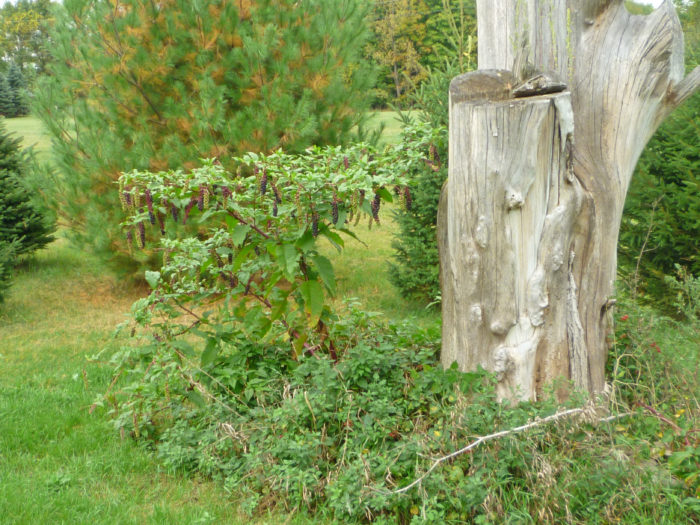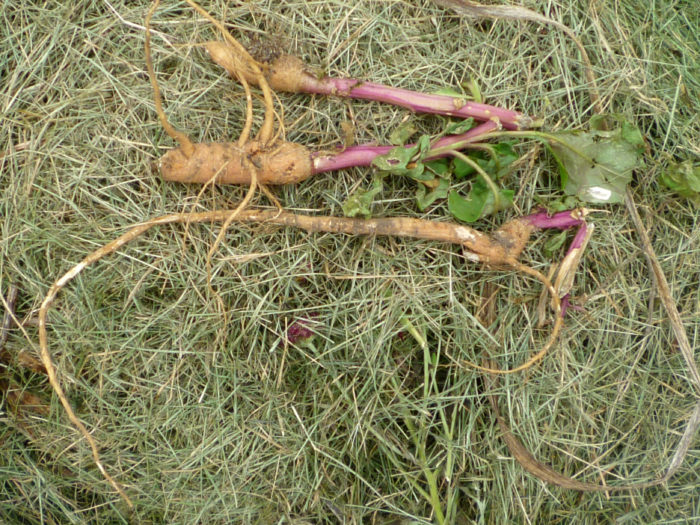Last summer I noticed a new, big weedy plant in sunny spots alongside the road we live on, pokeweed.
When pokeweed has only a few leaves it looks like a 4 o’clock plant but it’s obviously different once it grows a bit.
Later flowers develop. They are white in pointed clusters, rather ugly. Flowers are just developing on this plant.
Plants get enormous, over 6 feet tall, with long clusters of nasty looking purple berries. Here is a group of plants around a sunny stump.
Each plant makes hundreds of berries. They grow in clusters like malformed grapes.
If you see this plant kill it. Do not eat the berries or any part of the plant as it will poison you. All parts of the plant are toxic and should not be eaten. Don’t take chances and don’t let your kids or animals eat it either.
The plant has a large, tuberous root with long tap that makes it hard to dig out completely.
Today I sprayed several plants in the back with vegetation killer; in fact the first two photos are of plants several hours after spraying. The pokeweed may take several sprayings to die.
Pokeweed is not supposed to grow here; it is not native to Michigan. Birds (but not mammals) can eat the berries safely and that is likely the method the plants use to spread up here. The University of Pennsylvania website mentions it is rare in the Great Lakes area and cold winters will kill the plants but not the seeds. The site recommends using systemic herbicide to kill off the roots.
The Penn site notes that the very first shoots in the spring, before the stems turn purple, are edible if you boil them twice. Wikepedia says that the cooked shoots – not specifying it is only the early spring shoots – are edible if cooked but the roots are extremely poisonous even after cooking. Personally I’m not taking a chance.





Brian Miller says
Pokeweed is emerging as a leading antiviral constituent. Don’t kill the pokeweed just yet.
Pubmed research: lots of work done, genetic sequencing etc. PAP pokeweed antiviral protein.
Pubmed search results and many links to published work below.
https://pubmed.ncbi.nlm.nih.gov/?term=pokeweed+antiviral